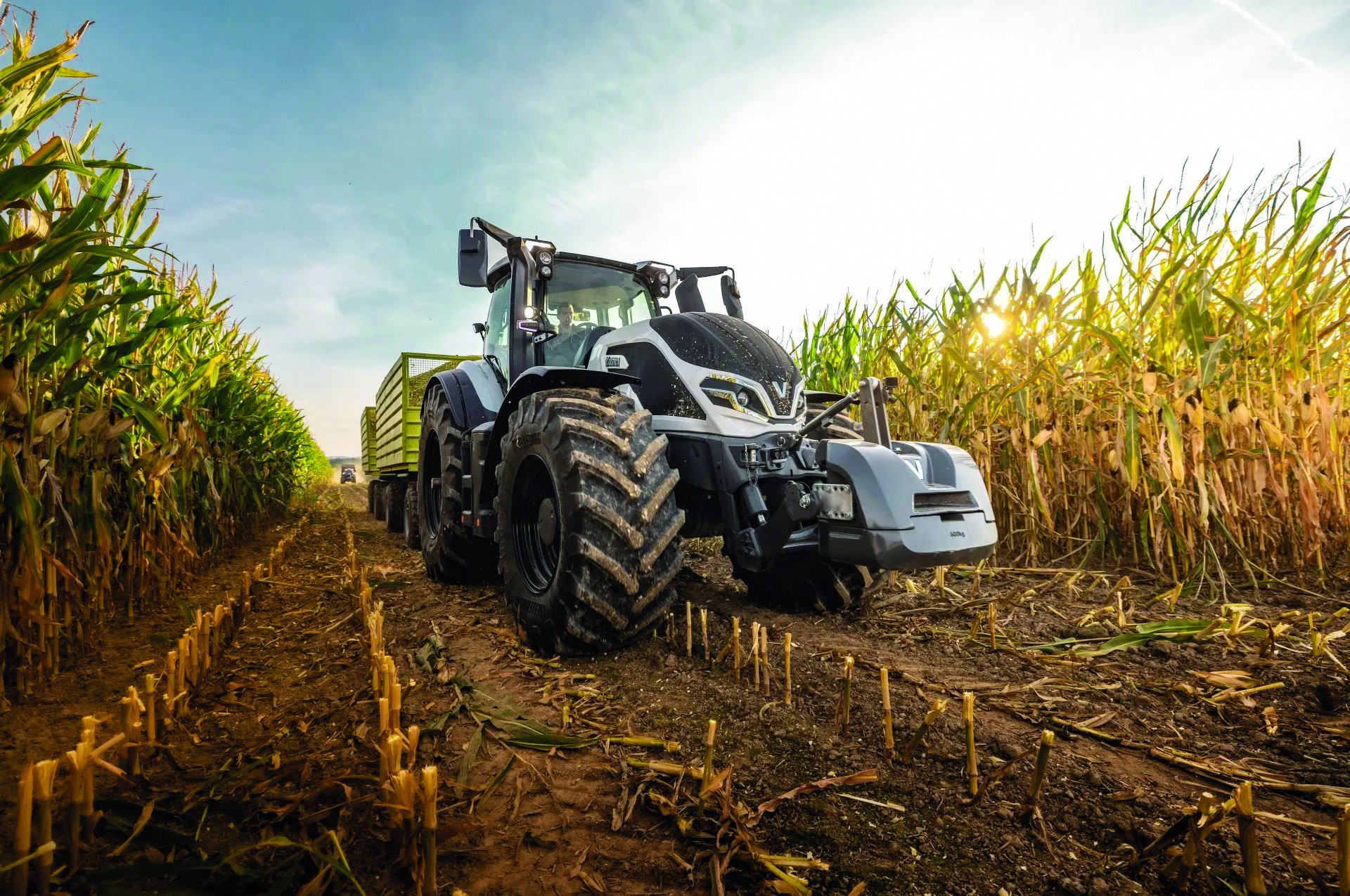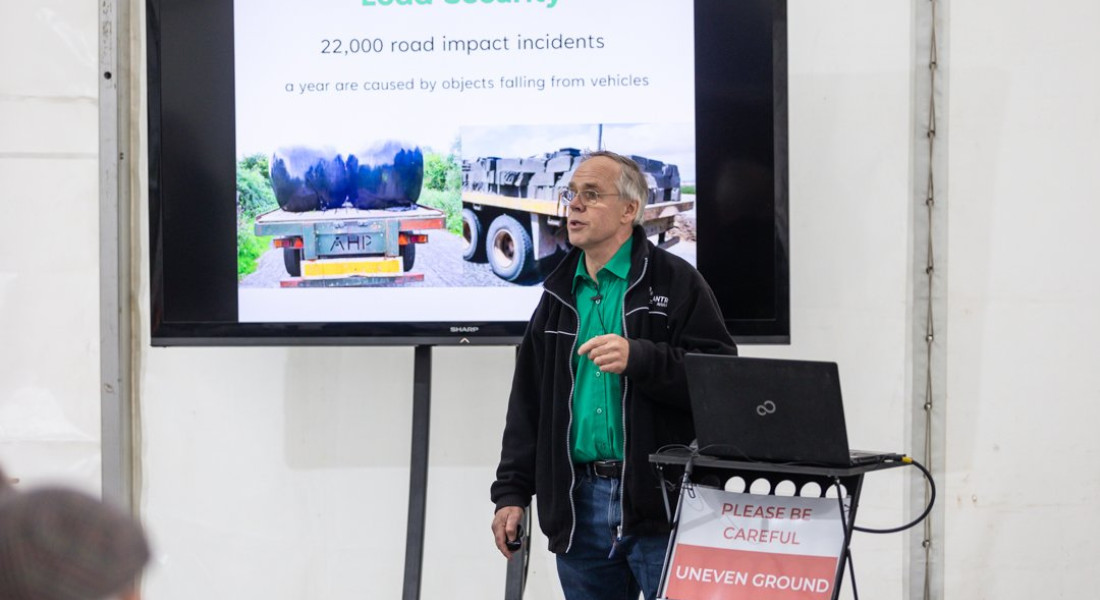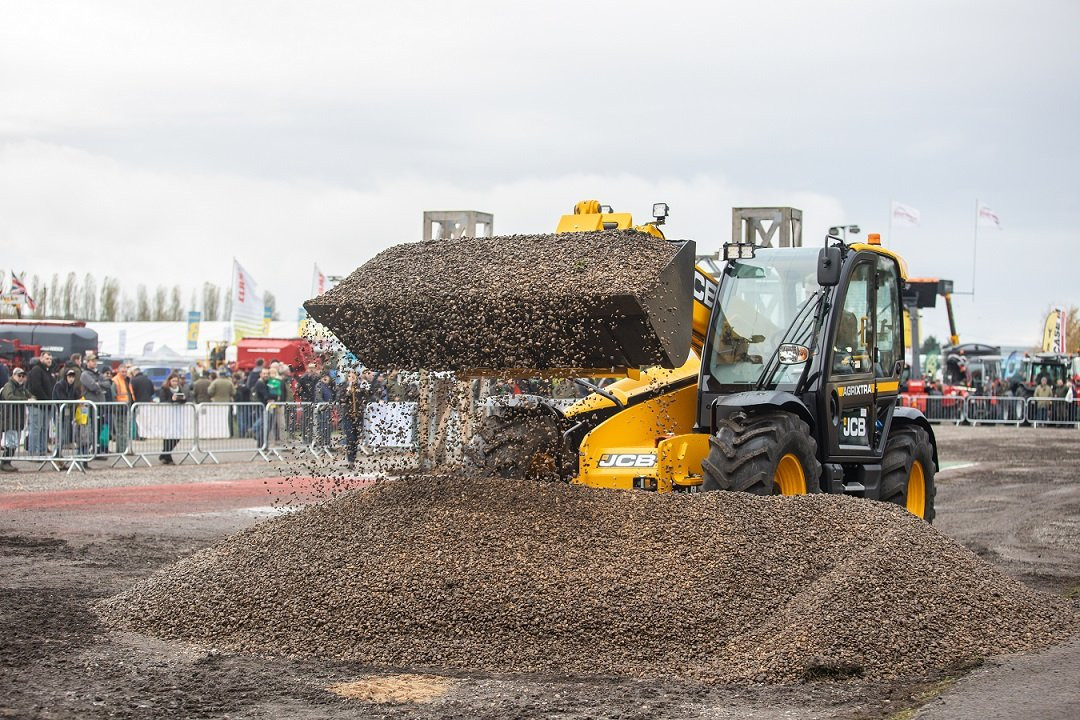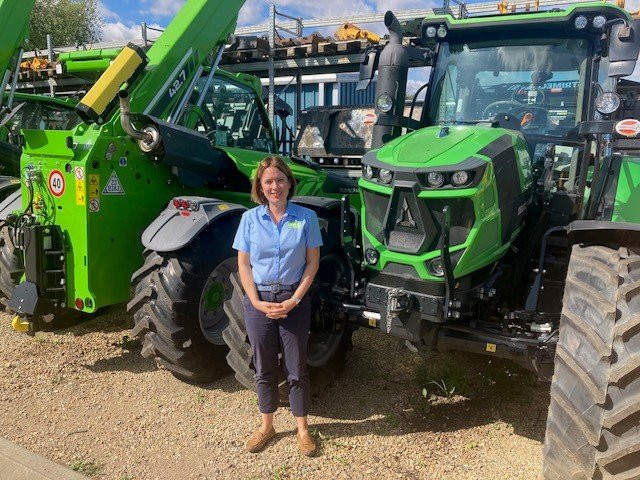Farm safety is hugely topical right now, with the industry remaining one of the most dangerous in the UK, so a new feature at the Midlands Machinery Show shone a light on safer operating procedures.
“In the past year, the biggest issue I’ve seen has been load security,” said LANTRA trainer Mike Sumner. It only takes one slipped silage bale to kill a pedestrian or an over-loaded grain cart to cause a massive road accident – but too often safety is overlooked in the rush to get time-sensitive jobs done. “And we can’t take that risk. It’s our responsibility to protect other road users and operators.”
Where machinery or loads are found to be illegal, the driver and employer will both be liable, and could be subject to unlimited fines, loss of licence, or more serious court proceedings, warned Mike. Operators must be trained and given the right equipment – and satisfy themselves that it is safe to proceed.
Common issues are bales or equipment not being securely fastened to trailers, overloaded bulk carts, over-weight trailers for the tractor size, lack of warning beacons, and tractor drivers using their phones while driving. Other issues include not wearing seatbelts – a legal requirement in tractors just as in cars – doing commercial haulage on an agricultural licence, and non-compliance when it comes to working brakes, lights and number plates. “I can’t emphasise the importance of carrying out daily checks enough.”
That said, working safely does not have to be time-consuming – there is plenty of equipment on the market that can help. For example, having roller-covers on grain carts will prevent grain and dust from blowing off onto other road users like cyclists. Many farmers have manual covers, but they are time-consuming to fit and therefore often aren’t used at all. In addition, there is the safety issue of having to climb on the trailer to fit them – an automatic system is a much quicker and safer alternative, said Angus Western, managing director at Richard Western Trailers.
“A lot of our customers are moving over to automatic sheeting – a manual sheet takes about 10 minutes to fit whereas the roller sheet takes seconds.” Roller sheets can be retrofitted to older trailers, although bear in mind the safety of using trailers which weren’t designed to travel at the speeds of modern tractors – the braking system may not be up to the job.
Another option which is quicker and safer to use than the manual alternative is Richard Western’s Safe Lock bale clamping system, which was demonstrated live at the show. Introduced to the UK last year, the pneumatic side rails are fitted with pre-tensioned belts that adjust to fit different bale sizes. Once the bales are stacked, the side rails lift up and the belts keep the bales secure. “It takes about 45 minutes to strap and unstrap bales manually – this system results in more bales moved per hour with the highest level of safety,” said Angus. “It’s helping farmers to take more responsibility and ownership of their road transport.”
A final element of safety is looking after your own health, so the Show had a drop-in Health Hub offering health checks including blood pressure, blood sugar and cholesterol, manned by the Lincolnshire Rural Support Network’s nursing team. In addition, the Farming Community Network was on-site providing tailored mental health support.
“Farmers are very good at looking after their crops and livestock, but they’re less good at looking after themselves,” said a spokeswoman for FCN. “There’s a lot of uncertainty in the industry at the moment, with issues that are outwith farmers’ control, and sometimes things can be a little overwhelming.” She advised seeking support early, to enable for proactive planning on issues like succession, before issues become unmanageable.
“When people are working long hours, often by themselves, in stressful situations, that’s where accidents happen. But we’re there to offer support, both proactive and reactive – and there are a lot of positives out there; it’s a great industry to work in.”
-

04 Oct, 2023
New products in abundance at MMS


